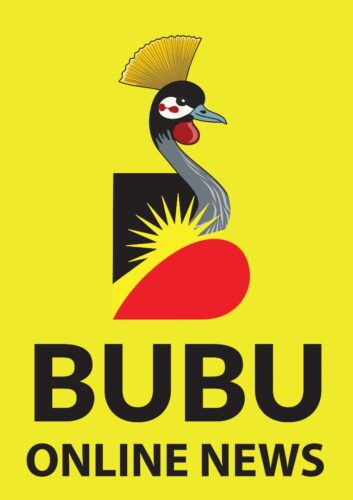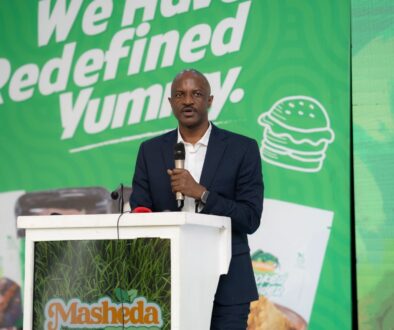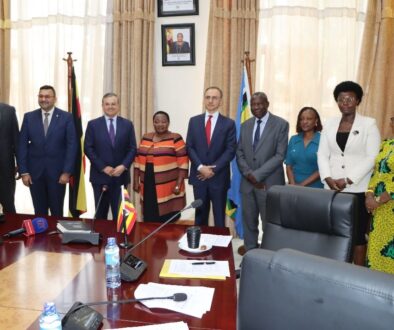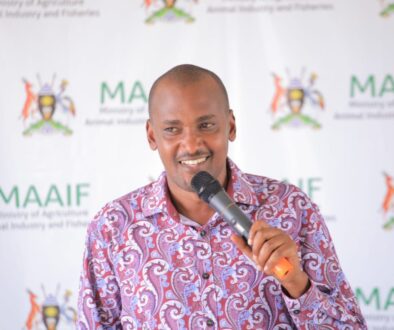Uganda Seeks More FAO Support for vaccine production and mechanization
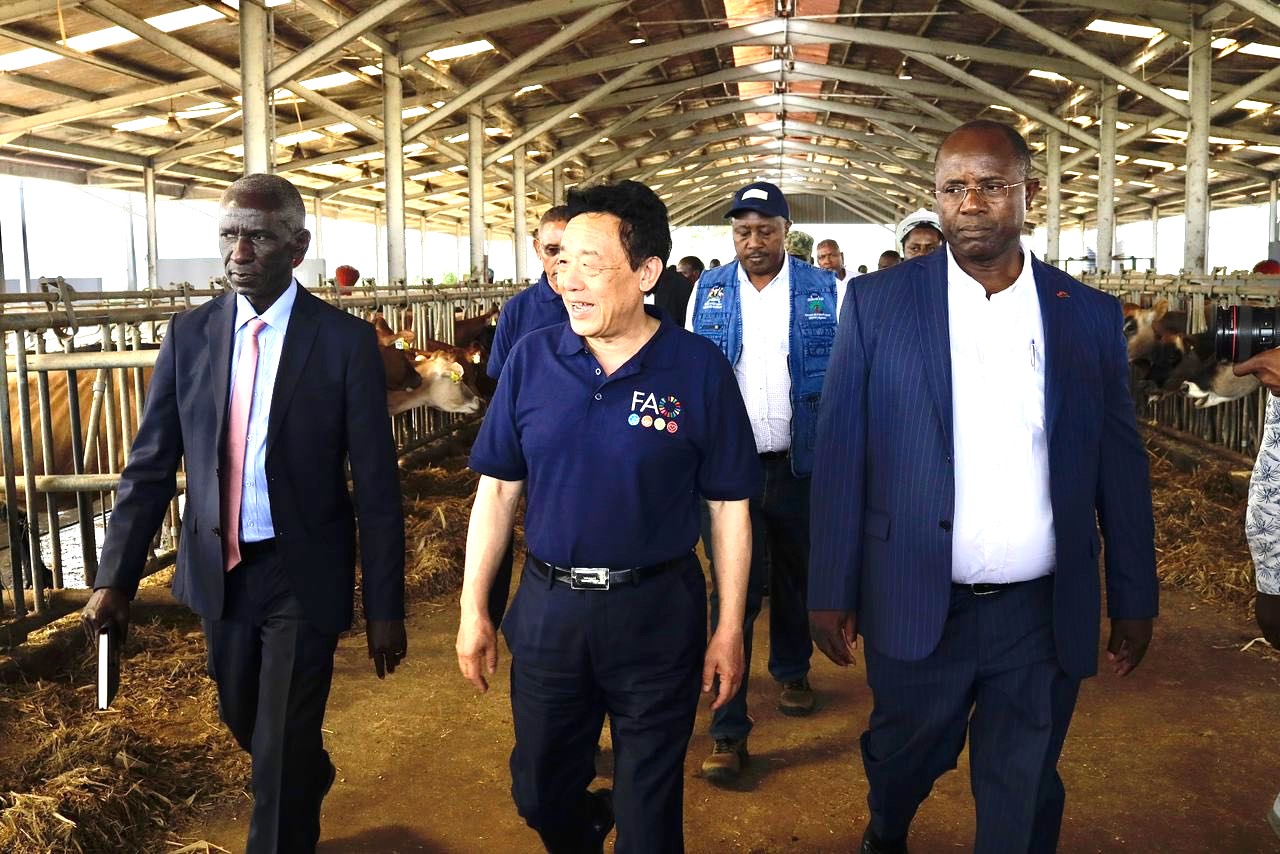
NARO Director General Dr. Yona Baguma (L), FAO Director General Qu Dongyu (C), and the Minister of State for Agriculture, Fred Bwino Kyakulaga (R) touring National Livestock Resources Research Institute (NaLIRRI)
The Director General of the Food and Agriculture Organization (FAO) of the United Nations, Qu Dongyu, is in Uganda on an official visit.
He has visited the National Crops Resources Research Institute (NaCRRI) and the National Livestock Resources Research Institute (NaLIRRI), both under the National Agricultural Research Organisation (NARO) in Namulonge, Wakiso District.
During the visit, NARO’s Director General, Dr. Yona Baguma, applauded FAO’s support to the tune of shs 1.88 billion in 2024 and called for expanded cooperation to enhance agricultural research, innovation, and technology development in Uganda.
Baguma said that FAO’s support has significantly contributed to the development of cassava seed systems and various other agricultural technologies.
He stated that while NARO has made significant progress in developing a wide range of technologies, there remain several untapped opportunities where collaboration with FAO could further benefit Uganda and the global community.
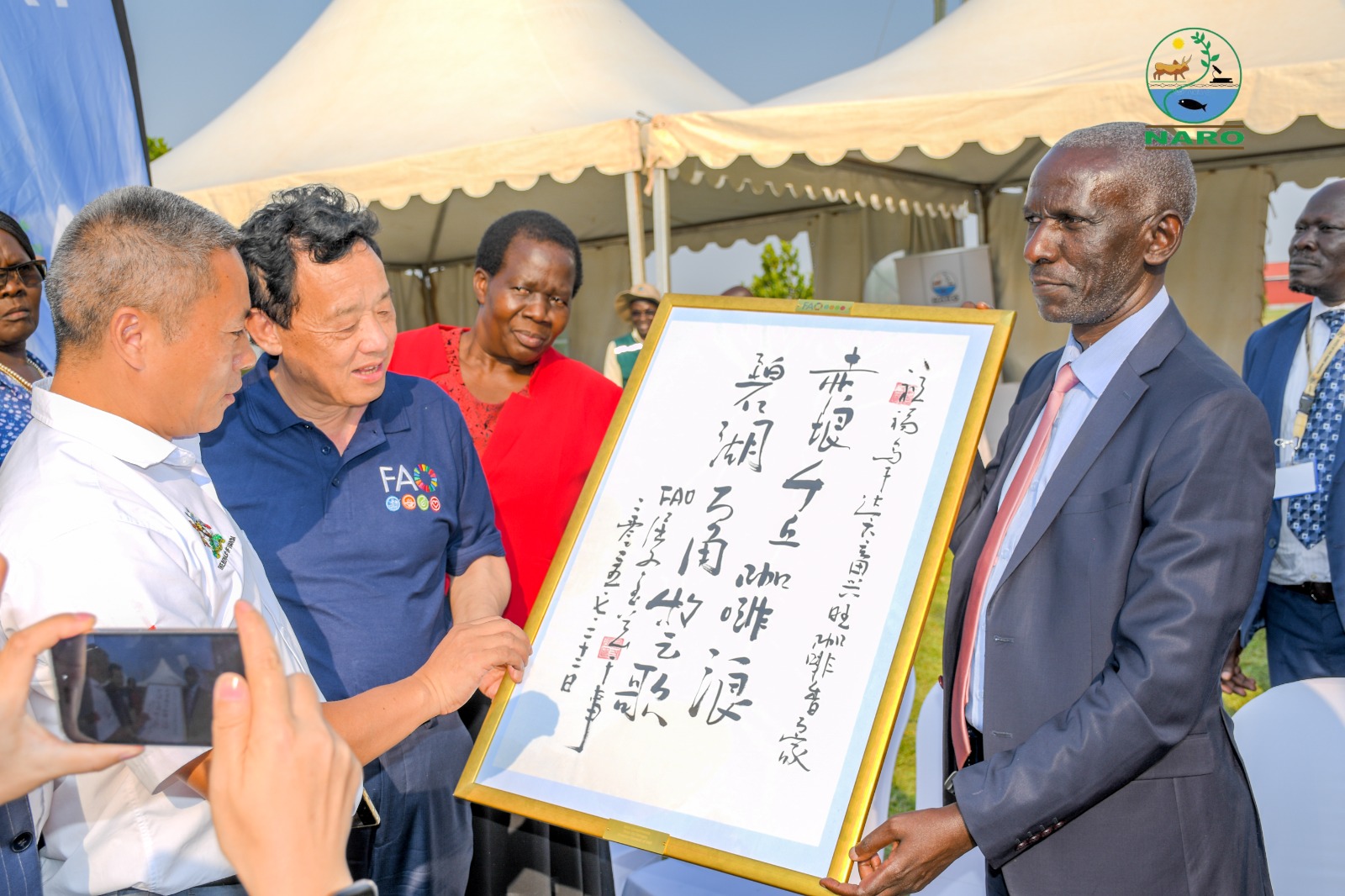
“Today, as NARO, we have a number of technologies we have been able to develop. However, I see a number of opportunities where FAO can work with NARO to support this country and support the world. We request FAO to come and work with NARO and support NARO in advancing the horticulture industry and spices industry for nutrition and also for the industry,” Baguma said.
“We request FAO to come and give support to NARO to help enhance productivity of a number of crop varieties, but importantly, also to help NARO in developing nutrient-dense crop varieties for the purpose of human health and also livestock health,” he added.
FAO has supported Uganda in developing a community-based cassava seed system for increased productivity and market linkages.
Recently, FAO introduced high-yielding cassava varieties to farmers in Kaberamaido and Katakwi districts to enhance cassava production and marketing in the Teso sub-region and promote resilience to climate change.
Baguma requested FAO to support NARO in both advancing soil sciences and food sciences.
The FAO Director General commended NARO’s research institutes in Namulonge as some of the best on the continent.
“I have been to so many African agricultural institutes; you are one of the best. Not only because of your facility, I can see you are in the process of transformation from traditional academic organization to the modern service agri-food system, service to farmers, and service to industry. That’s a real transformation,” he said.
“I see you are on the promising track, not only in [anti-tick] vaccine but also others. In countries like Uganda, you need science-based solutions, a data-based approach, and, more importantly, innovation-driving agro-food system development. In general, innovation drives the economy. That’s the only solution and approach for your country to move up from a low-income country to a middle- and high-income country,” he added.
The Minister of State for Agriculture, Fred Bwino Kyakulaga, requested more collaboration with FAO, especially in the area of vaccine production and mechanization.
“I want to state and make a request to FAO that, given the harmonious working relationship that we have between us, we would like to request more collaboration, and we have a few areas that we think should be considered first. Given the guidance of our national leader, His Excellency, the President, he singled out vaccine development as our number one. And here we are not only looking at vaccines; we are looking at vaccines and pharmaceuticals. We have an ambitious plan of developing a vaccine and pharmaceutical city (in Namulonge), and we have put aside 100 acres for that purpose. We request you to collaborate with us in developing that dream, but also in working towards making it and transforming it into a reality. So, vaccines and pharmaceuticals are our number one area where I want to have more collaboration with FAO. We also want to suggest that we look at mechanization as another area that we could look at for prioritizing in our collaboration with FAO,” Kyakulaga said.


